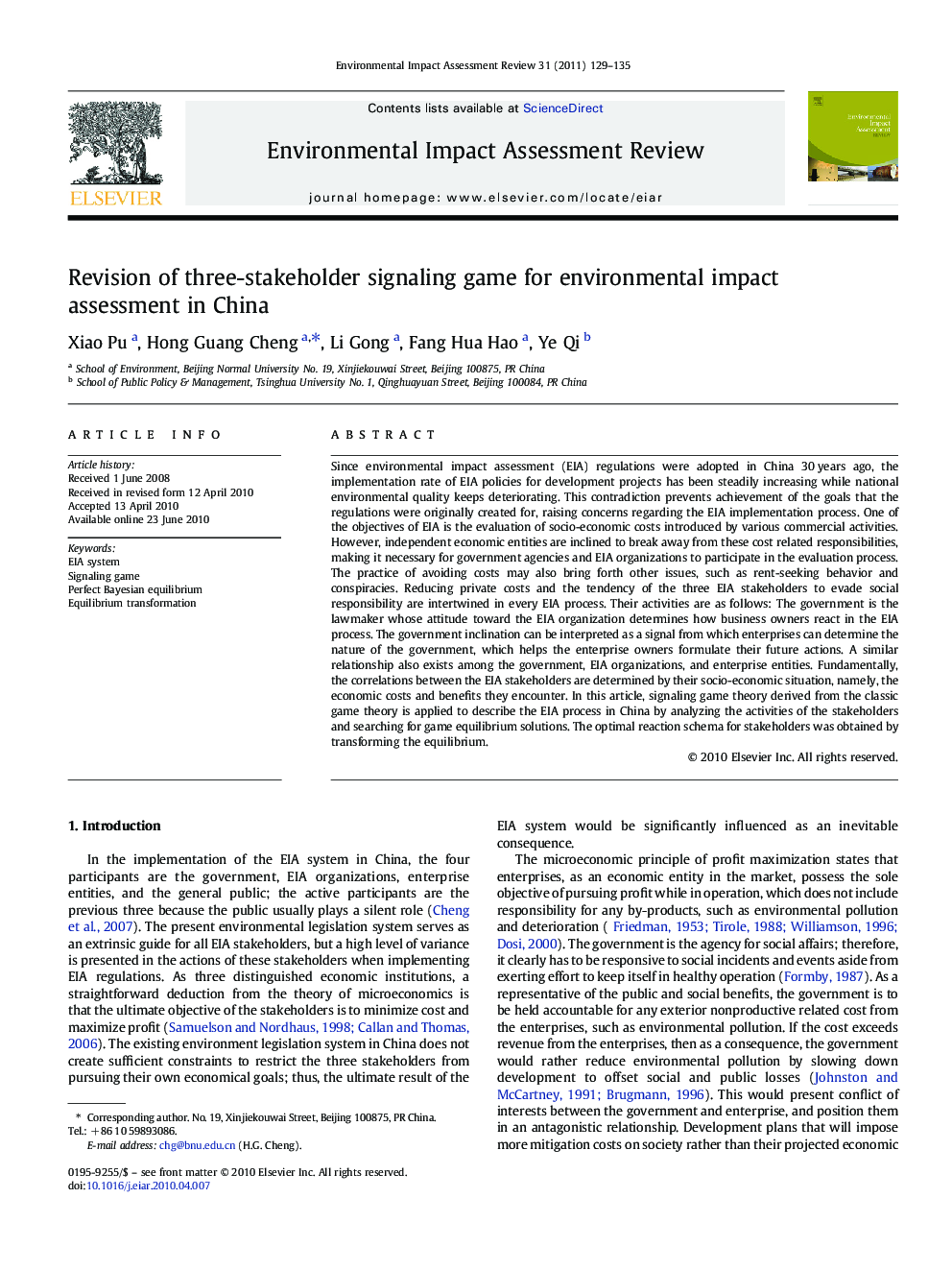| Article ID | Journal | Published Year | Pages | File Type |
|---|---|---|---|---|
| 1053002 | Environmental Impact Assessment Review | 2011 | 7 Pages |
Since environmental impact assessment (EIA) regulations were adopted in China 30 years ago, the implementation rate of EIA policies for development projects has been steadily increasing while national environmental quality keeps deteriorating. This contradiction prevents achievement of the goals that the regulations were originally created for, raising concerns regarding the EIA implementation process. One of the objectives of EIA is the evaluation of socio-economic costs introduced by various commercial activities. However, independent economic entities are inclined to break away from these cost related responsibilities, making it necessary for government agencies and EIA organizations to participate in the evaluation process. The practice of avoiding costs may also bring forth other issues, such as rent-seeking behavior and conspiracies. Reducing private costs and the tendency of the three EIA stakeholders to evade social responsibility are intertwined in every EIA process. Their activities are as follows: The government is the lawmaker whose attitude toward the EIA organization determines how business owners react in the EIA process. The government inclination can be interpreted as a signal from which enterprises can determine the nature of the government, which helps the enterprise owners formulate their future actions. A similar relationship also exists among the government, EIA organizations, and enterprise entities. Fundamentally, the correlations between the EIA stakeholders are determined by their socio-economic situation, namely, the economic costs and benefits they encounter. In this article, signaling game theory derived from the classic game theory is applied to describe the EIA process in China by analyzing the activities of the stakeholders and searching for game equilibrium solutions. The optimal reaction schema for stakeholders was obtained by transforming the equilibrium.
